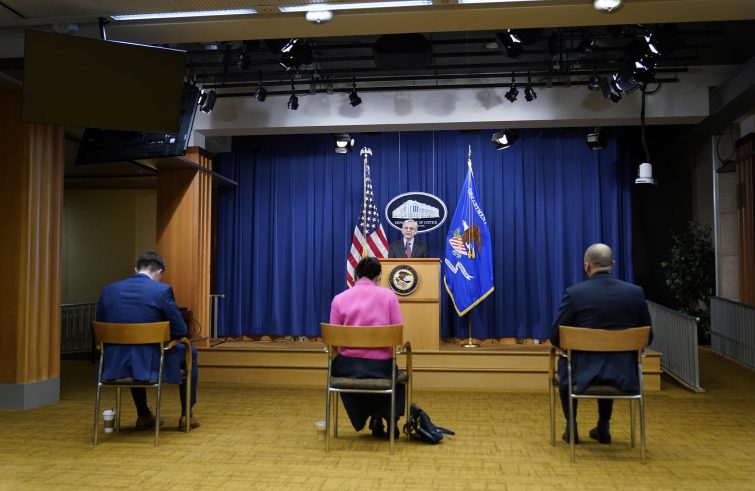
(from New York) The verdict in the trial of Derek Chauvin, the former Minneapolis police officer convicted of the murder of George Floyd, the black man who died as he was pinned to the ground under Chauvin’s knee, defused tensions that had been building for months in Minneapolis-Saint Paul, known as Minnesota’s twin cities. The news of the conviction was received with deep emotion, it renewed hope in the judicial system and restored dignity to African-Americans. For the archbishop of Minneapolis, Bernard A. Hebda,
the jury’s decision is “is a sobering moment for our community”, and an opportunity to reflect and to “confront the chasm between the brokenness of our world and its harmony and fraternity”,
using the “healing power of forgiveness, compassion, reconciliation and peace.” Monsignor Hebda called for comfort to the family of George Floyd and all who mourn, and satisfaction to those who thirst for justice, whilst remembering that even in challenging times everyone must continue to work non-violently for the common good and to be instruments of reconciliation, even after the verdict.
The verdict came after about 10 hours of deliberations, after a three-week trial, 45 witnesses and video footage documenting that Floyd died from cardiopulmonary arrest. The jury found the former Minneapolis police officer guilty on charges of second-degree murder, third-degree murder and second-degree manslaughter. 330 days have passed since Floyd’s death, and Judge Peter Cahill will make the final decision on sentencing in eight weeks.
Following the verdict, the US Conference of Catholic Bishops declared in a statement:
“The death of George Floyd highlighted and amplified the deep need to see the sacredness in all people, but especially those who have been historically oppressed.
As we have seen so plainly this past year, social injustices still exist in our country, and the nation remains deeply divided on how to right those wrongs”, reads the statement signed by Bishop Shelton J. Fabre, chairman of the U.S. Conference of Catholic Bishops’ Ad Hoc Committee Against Racism, and Archbishop Paul S. Coakley of Oklahoma City, chairman of the Committee on Domestic Justice and Human Development. “As a diverse community,
the Catholic Church is committed to changing hearts and minds
and to moving the conversation about race in this country beyond accusations and recriminations toward practical, nonviolent solutions to the everyday problems that are encountered in these communities”, the bishops write, calling on everyone to join in “the hard work of peacefully rebuilding what hatred and frustration have torn down”, as “real work of restorative justice.”
Minnesota’s Catholic Bishops equally stated their commitment “to eradicating structures of sin, racism in Minnesota and beyond.”
Catholic parishes and schools in the archdiocese responded to the protests, riots and unrest surrounding this long year since the death of George Floyd and the police killing of Duante Wright with prayers, seminars and study groups on racism.
Members of an anti-racism task force at St. Thomas More Church in St. Paul held a two-hour prayer service every day throughout the trial, as did St. Peter Claver parish.
“I wouldn’t call today’s verdict justice”,
remarked Minnesota Attorney General Keith Ellison,
the lead prosecutor in the state’s case against Derek Chauvin. “Because justice implies that there is restoration.
But it is accountability, which is the first step towards justice.”
Restorative justice would involve restoring George Floyd’s life, but this can never happen, not for him, not for Duante, Breonna, Adam, Emmet and all those lives stolen by white supremacy.












